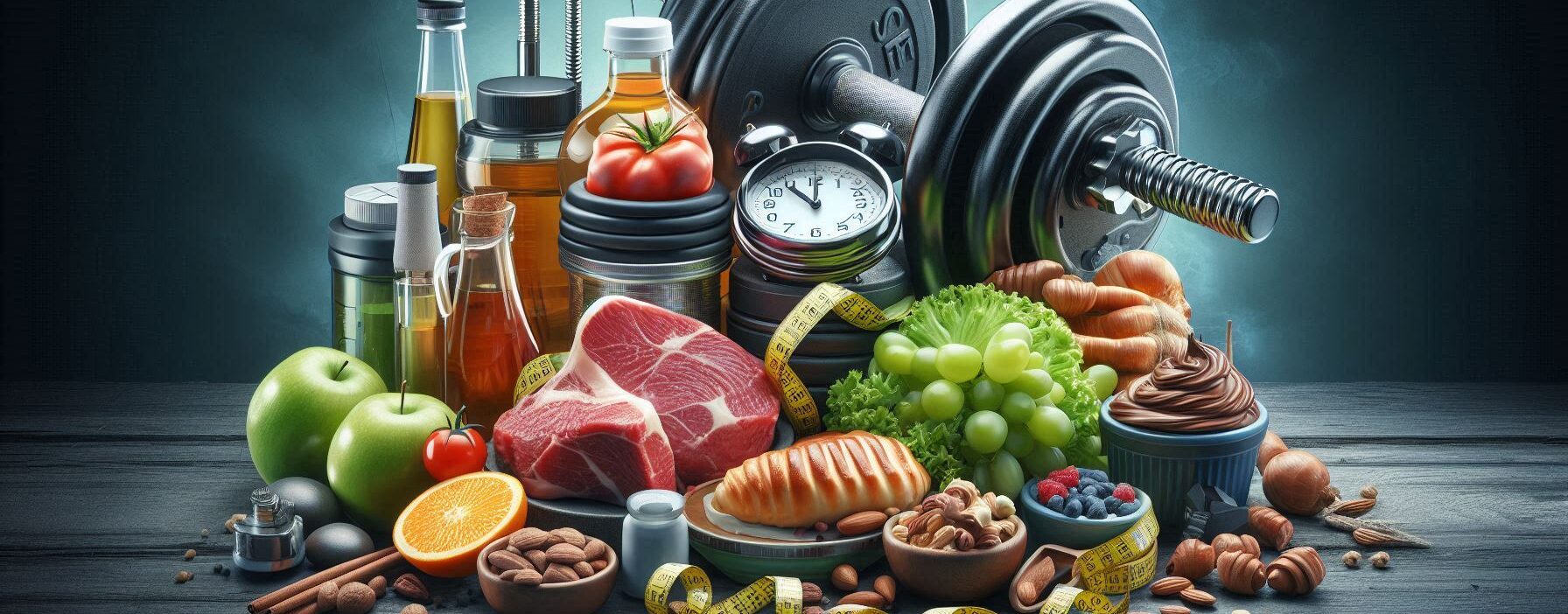
When we talk about nutrition, it’s easy to get caught up in the big stuff—like proteins and carbs. I mean, who wouldn’t want to chat about that juicy steak or those heavenly pasta dishes? But lurking in the shadows, quietly doing their job without any fanfare, are micronutrients.
Yes, folks! These tiny but mighty players are essential for our health and fitness goals. So, let’s dive into the world of vitamins and minerals with a sprinkle of humor because, let’s be honest, we could all use a little laughter while discussing broccoli.
Top Takeaways and Key Concepts
Eat a variety of colorful whole foods to supply essential vitamins and minerals daily.
Prioritize micronutrients for energy and recovery to improve fitness performance and reduce fatigue.
Watch for common deficiencies like iron, vitamin D, and magnesium that harm strength and mood.
Use supplements only to fill gaps and never rely on them instead of real food.
Track nutrient intake when needed to identify deficiencies and improve overall health.
Summary of This Article
This article explains the vital role micronutrients—vitamins and minerals—play in fitness, health, and daily performance. Unlike macronutrients, micronutrients don’t provide energy but support crucial functions like muscle recovery, immune health, and energy production. Many people are deficient in key micronutrients like iron, vitamin D, and magnesium, often leading to fatigue, weakness, or poor workout performance. The article encourages eating a colorful diet full of fruits, vegetables, nuts, and legumes to naturally get these nutrients, while using supplements only when necessary. Tracking micronutrient intake can help optimize health and fitness goals, making these tiny nutrients truly powerful.
Video Summary
Please Note: This post may contain affiliate links. If you click one of them, we may receive a commission at no extra cost to you. As an Amazon Associate, I earn from qualifying purchases.
Shortcuts to Exercise Equipment Shopping at Amazon
Ellipticals - Exercise Bikes - Recumbent Bikes - Treadmills - Rowers
Dumbbells - Resistance Bands - Kettlebells - Benches - Pull-up Bars
1. What Are Micronutrients Anyway?
Micronutrients are like the unsung heroes of our diet—think of them as the sidekicks who don’t get enough credit. They include vitamins (like A, C, D) and minerals (like iron, calcium). While macronutrients provide energy (and keep us from becoming hangry), micronutrients help our bodies perform various functions.
For instance, vitamin C is great for boosting your immune system—so you can finally dodge that flu bug going around your office like it’s a game of dodgeball. Meanwhile, calcium helps build strong bones; this means fewer trips to the doctor when you inevitably trip over your own feet during a workout.
Interestingly enough, these nutrients are needed in smaller amounts than macronutrients but are just as crucial for overall health. Without them? Well, let’s just say you might end up feeling like a deflated balloon after a birthday party.
2. Why Micronutrients Matter for Fitness
Now that we’ve established what they are let’s explore why they matter specifically for fitness enthusiasts like ourselves! Ever tried lifting weights on an empty stomach? It feels kind of like trying to run a marathon while wearing flip-flops—it doesn’t work out well!
Micronutrients play vital roles in energy production and muscle recovery. For example, B vitamins help convert food into energy so that you can power through those last few reps at the gym instead of collapsing onto the floor like an overcooked noodle.
Moreover, certain minerals such as magnesium aid in muscle function and reduce cramps—because nobody wants to be “that person” crumpled on the floor mid-squat due to lack of electrolytes!
3. Common Deficiencies: Are You Missing Out?
Let’s see if you’re missing some key players from your nutritional lineup! Many people unknowingly suffer from deficiencies in micronutrients without even realizing it.
If you’ve ever felt sluggish or moody after skipping breakfast—or heaven forbid—a whole food group—you might want to check if you’re low on something important.
Iron deficiency is particularly common among athletes because we lose iron through sweat and physical exertion. Not getting enough? You may feel tired faster than someone who just binge-watched an entire season of their favorite show in one sitting.
Another culprit is vitamin D; many people don’t get enough sunlight (especially during winter months). This can lead not only to fatigue but also impact bone health—which isn’t ideal when attempting to lift heavy objects at the gym!
4. How To Get Your Micronutrient Fix
By the way—getting enough micronutrients doesn’t have to involve complicated meal plans or expensive supplements! Instead, focus on eating a variety of colorful fruits and vegetables daily—they’re nature’s candy!
Fruits like berries are packed with antioxidants (hello glowing skin!) while leafy greens such as spinach provide iron and calcium galore! And speaking of greens…don’t forget about legumes and nuts; they’re nutrient-dense snacks that won’t ruin your healthy eating streak!
If cooking isn’t really your jam (I hear you!), consider smoothies! Tossing some spinach into a berry smoothie hides all those good-for-you nutrients behind deliciousness—you’ll hardly notice it’s there unless someone tells you—and trust me; no one needs that negativity in their life!
5. Supplements: Yay or Nay?
Honestly? Supplements can be beneficial but shouldn’t replace whole foods entirely! Think of them more like backup singers rather than lead vocals—their role is supportive rather than central.
If you’re considering taking supplements because you’ve identified deficiencies or specific needs based on dietary restrictions (veganism comes with its challenges), consult with healthcare professionals first before diving headfirst into aisles filled with colorful bottles promising miraculous results.
On the other hand—multivitamins can fill gaps left by less-than-perfect diets—but remember: nothing beats real food packed full o’ nutrients straight from Mother Nature herself!
6. Tracking Your Intake
To fair—is tracking micronutrient intake necessary? Well…it depends! For casual eaters who enjoy balanced meals filled with different colors—that’s great news! But if you’re serious about optimizing performance or recovering effectively post-workout—you may find tracking helpful.
Apps such as MyFitnessPal allow users not only to track calories/macros but also break down micronutrient content per meal too!
Knowing where deficiencies lie helps adjust diets accordingly—after all knowledge is power…or at least it helps avoid embarrassing moments at family dinners when Aunt Mildred asks why you look so pale!
Conclusion: Embrace Those Tiny Nutrients
So there you have it—the importance of micronutrients laid bare before you! Next time someone tries convincing you that eating donuts counts as breakfast because “they have sugar,” gently remind them about vitamins being essential too…and maybe throw in some fun facts about kale while you’re at it!
Incorporating plenty of these tiny yet powerful nutrients will enhance not only fitness performance but overall well-being too—all while keeping things lighthearted along this journey towards healthier living together!
Suggested Resources:
The Role of Vitamins in Fitness
https://www.healthline.com/nutrition/vitamins-and-minerals-for-fitness
Essential Minerals for Athletes
https://www.bodybuilding.com/content/essential-minerals-athletes.html
Micronutrient Deficiencies and Their Effects
https://www.ncbi.nlm.nih.gov/pmc/articles/PMC7000560/
Frequently Asked Questions
Why are micronutrients important for fitness?
Micronutrients support energy production, muscle recovery, and overall body function. Without them, workouts feel harder and performance declines over time.
Which micronutrient deficiencies are most common?
Iron, vitamin D, and magnesium deficiencies are common and can lead to fatigue, lower strength, and reduced motivation during workouts.
Do micronutrients give you energy?
They do not provide direct calories, but they help convert food into usable energy that fuels workouts and daily activity.
What foods are best for getting more micronutrients?
Colorful fruits, vegetables, nuts, legumes, and leafy greens are some of the best natural sources of vitamins and minerals.
Should you rely on supplements for micronutrients?
Supplements can help fill gaps when needed, but whole food should remain the main source of micronutrient intake.
Can micronutrients affect workout recovery?
Yes, many vitamins and minerals play a role in reducing fatigue, supporting muscle repair, and improving post-workout recovery.
Is tracking micronutrient intake helpful?
Tracking can be helpful when improving fitness performance or troubleshooting fatigue to identify nutrient shortfalls that need attention.

Kevin Collier is a passionate fitness expert dedicated to helping individuals achieve their health and wellness goals. With a focus on weight lifting, exercise routines, and effective weight loss strategies, he aims to inspire and motivate others on their fitness journeys. Through evidence-based insights and practical advice, Kevin empowers readers to make informed decisions about their health, encouraging a balanced approach to fitness and overall well-being. Whether you’re a beginner or an experienced athlete, his expertise offers valuable guidance to elevate your fitness game.




